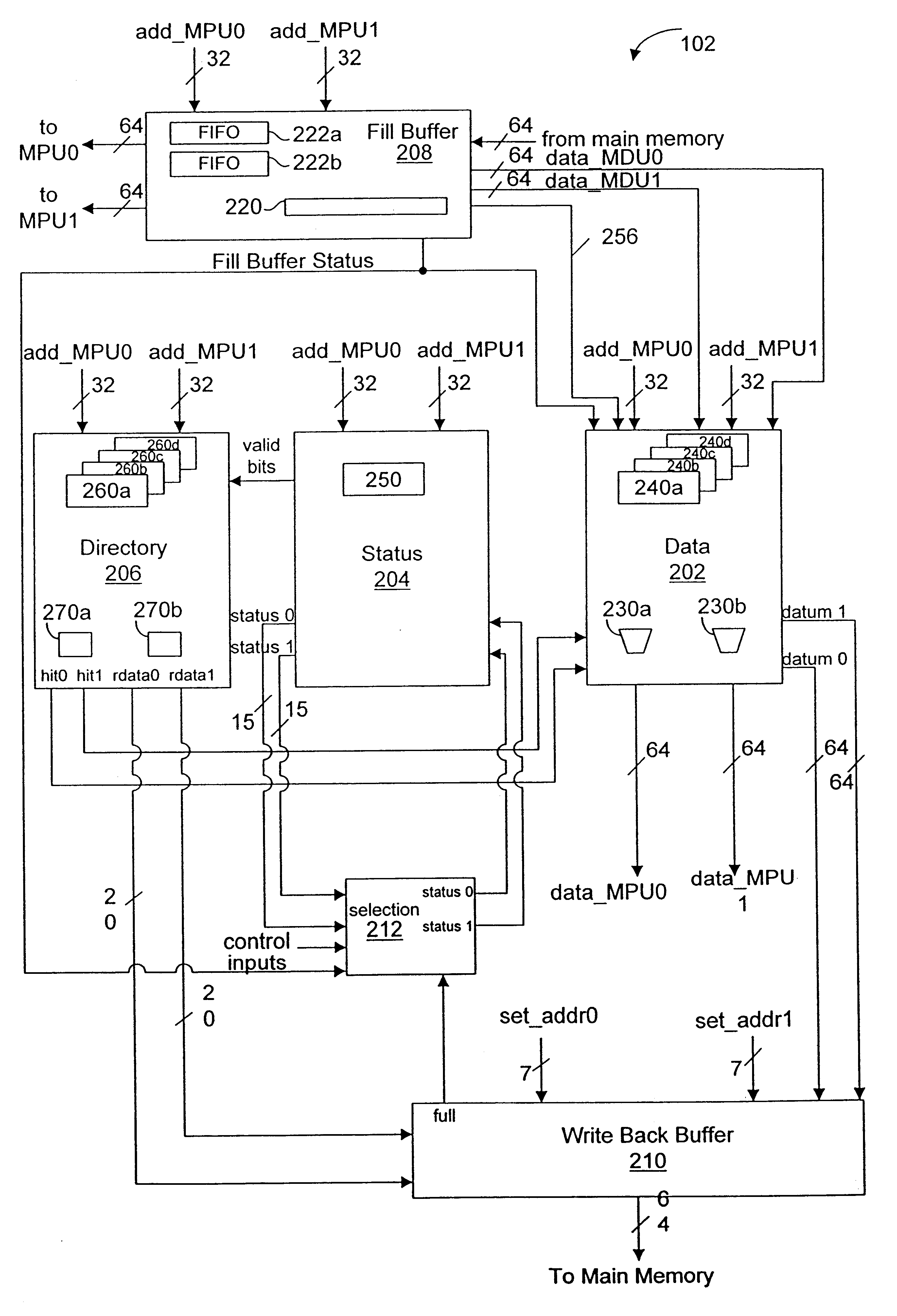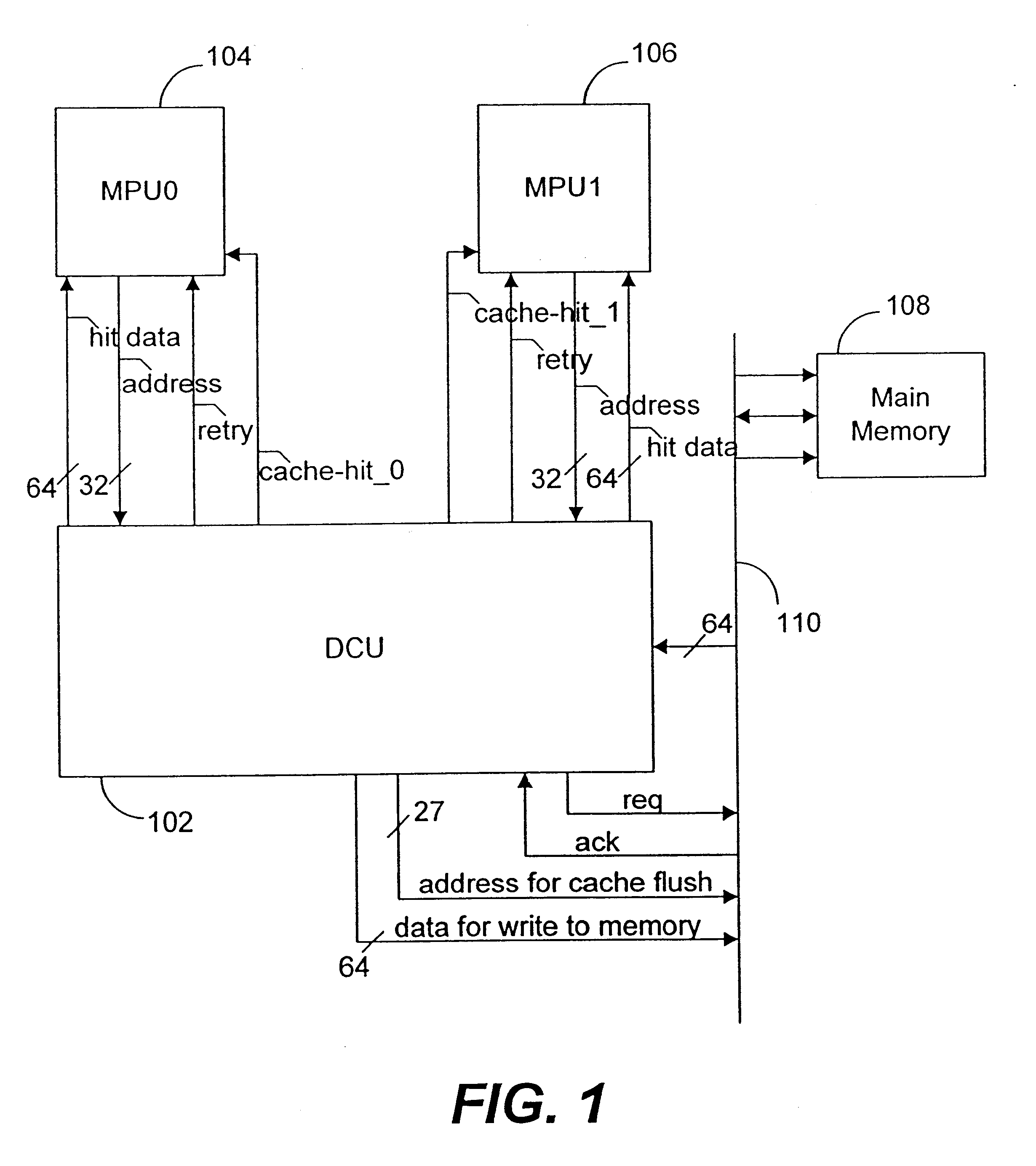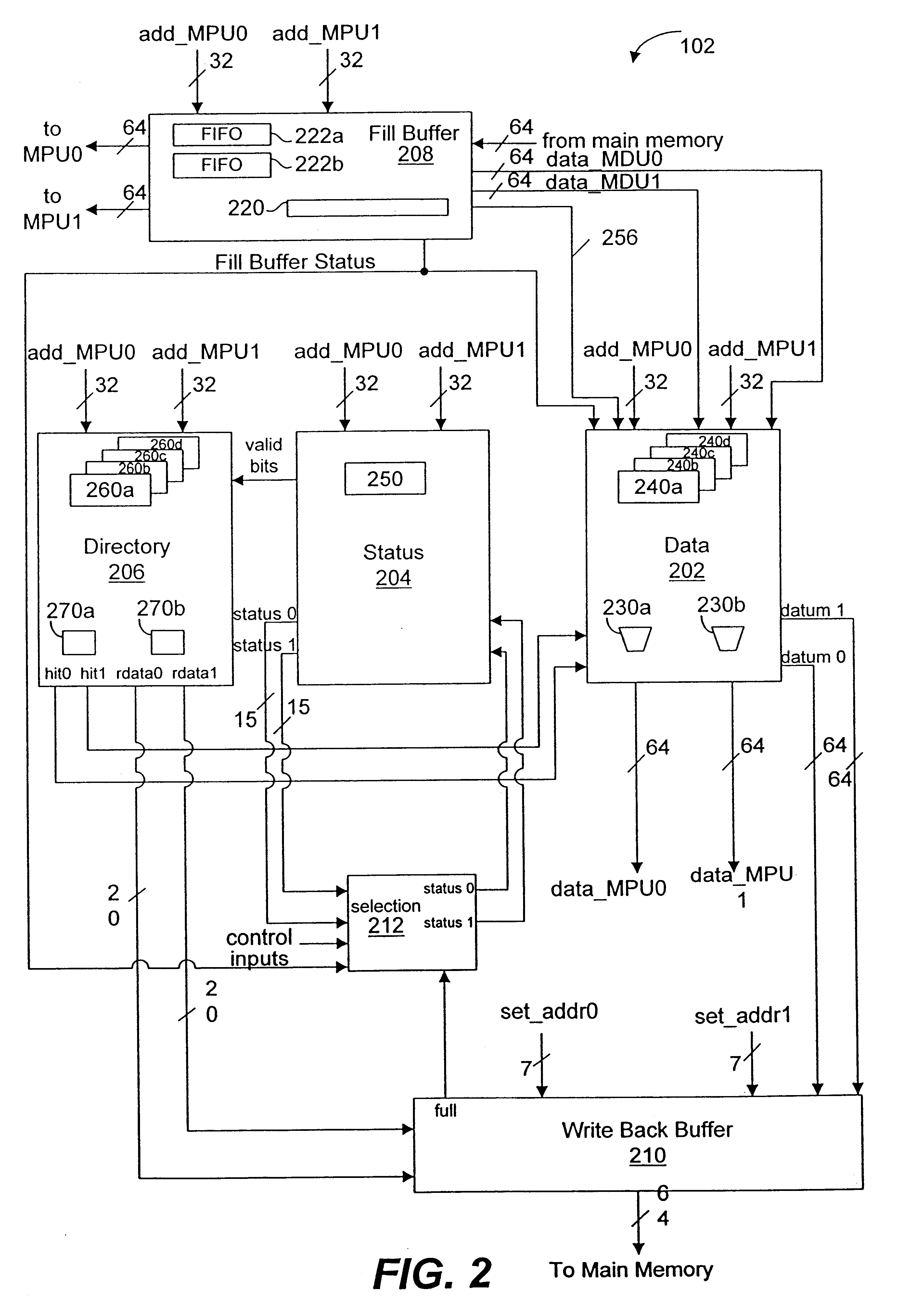Multiple variable cache replacement policy
a cache replacement and variable technology, applied in the field of processor caches, can solve the problems of limiting the hit ratio, affecting the performance of the system, and affecting the ability to retrieve information from the main memory of the system
- Summary
- Abstract
- Description
- Claims
- Application Information
AI Technical Summary
Problems solved by technology
Method used
Image
Examples
Embodiment Construction
The above-described embodiments of the present invention are illustrative and not limiting. It will thus be obvious to those skilled in the art that various changes and modifications may be made without departing from this invention in its broader aspects.
For example, the fill buffer and data array can store larger or smaller amounts of data than in the specific embodiments disclosed. Also for example, more media processor units may share use of the data cache unit. Also for example, the discussed connections are descriptive and do not limit other connections or other size connections within system 100.
As another example, the shared resources considered in the cache replacement policy are not limited to the write back buffer. In addition to, or instead of, the write back buffer, other shared resources that may be considered include a cross bar switch, memory controller, and memory controller buffers.
PUM
 Login to View More
Login to View More Abstract
Description
Claims
Application Information
 Login to View More
Login to View More - R&D
- Intellectual Property
- Life Sciences
- Materials
- Tech Scout
- Unparalleled Data Quality
- Higher Quality Content
- 60% Fewer Hallucinations
Browse by: Latest US Patents, China's latest patents, Technical Efficacy Thesaurus, Application Domain, Technology Topic, Popular Technical Reports.
© 2025 PatSnap. All rights reserved.Legal|Privacy policy|Modern Slavery Act Transparency Statement|Sitemap|About US| Contact US: help@patsnap.com



